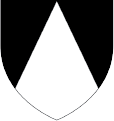Prominent Dominicans
Saint Thomas Aquinas (1225–1274) – philosopher and theologian
Saint Thomas Aquinas was a Dominican philosopher, theologian, and scholar.who is one of the most important figures in the history of Western thought. His influence on Catholic theology and philosophy is enormous, and many of his ideas are still relevant today. He combined Aristotelian philosophy with Christian doctrine and created Thomism , which is the official philosophical and theological system of the Catholic Church.
Youth and education
Thomas was born in 1225 in Roccasecca, Italy. , which at that time belonged to the Kingdom of Sicily. He came from the influential noble family of Aquino and was sent to study at the Benedictine monastery of Monte Cassino at a young age because his family had high expectations - he was to become an abbot.
But even as a young man, Thomas felt a calling to learn something more. He headed for the University of Naples,where he came into contact with the philosophy of Aristotle and the teachings of the Dominicans. It was there that he decided to enter to the Dominican order,which caused great opposition from his family. His brothers kidnapped him and kept him under house arrest for a year to make him give up becoming a monk, but Thomas remained steadfast. Eventually, his family had to release him and he went to study in Paris and Cologne , where he also received instruction from Saint Albert the Great.
Scientist and scholar
Thomas quickly became a recognized theologian and philosopher, who taught at the universities of Paris, Rome, and Naples. He was an exceptionally prolific writer, and his works profoundly influenced Catholic theology and Western philosophy.
Best known works
Summa Theologiae – his most famous work, which is a huge theological manual, divided into three parts:
- The nature and existence of God
- human nature and morality
- Christ, Redemption, and the Sacraments
Summa Contra Gentiles – a work aimed primarily at followers of Islam and other religions, defending the Christian faith with rational arguments.
Commentaries on the works of Aristotle – Thomas interpreted and expanded on Aristotle's ideas and showed how they fit with Christian teaching.
Philosophy and teaching
The harmony of reason and faith is at the heart of Thomas Aquinas' philosophy. He believed that man can reach a knowledge of truth through reason, but complete truth is only available through revelation.
There are several important concepts in his teaching:
Proofs for the Existence of God – Five rational arguments for the existence of God (known as "Aquinas' Five Ways").
The relationship between nature and grace – human nature is good, but needs God's grace to reach perfection.
Virtues and Ethics – was based on Aristotle's ideas, but linked them to Christian doctrine.
Influence and legacy
His teachings became the official philosophy and theology of the Catholic Church.
1323. He was declared a saint in 2011.
1567. In 1511 he became a Doctor of the Church (Doctor Angelicus – "Angelic Doctor").
1879. In 1811, Pope Leo XIII confirmed that Thomism was the official foundation of Catholic philosophy.
Death and canonization
Thomas Aquinas died on March 7, 1274, while on his way to attend the Council of Lyon. The cause of his death is believed to be overexertion and poor health. His tomb is in Toulouse, France.
Why is he important?
The thoughts and writings of Thomas Aquinas strongly shaped European philosophy and Christian theology. His ideas live on in Catholic doctrine and continue to influence modern theologians, philosophers, and moralists.

https://et.wikipedia.org/wiki/Aquino_Thomas
